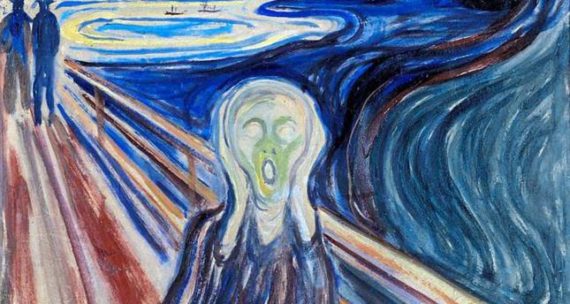
(1-18-19) Dr. E. Fuller Torrey is criticizing the National Institute of Mental Health (NIMH) for failing to fund new drug trials for medicines that could help treat schizophrenia.
Dr. Torrey is one of the nation’s leading experts on schizophrenia and is the author of the groundbreaking 1983 book, Surviving Schizophrenia, widely considered the standard reference book about the illness.
In an article published this week in the Journal of Clinical Psychiatry, Torrey was joined by two other physicians, in challenging a NIMH policy that has resulted in the government founding only two new trials for schizophrenia drugs between 2015 to 2017.
NIMH was created in 1946 to find better drugs for treating mental illnesses.
“It is completely unacceptable for NIMH to virtually abandon the search for new drugs for schizophrenia,” Dr. Torrey wrote in an email, “especially at this time when NIMH has received major increases in funding from Congress over the past two years. All of us who want better drug treatments for individuals with schizophrenia should let Dr. Joshua Gordon (head of NIMH) know how important such trials are, and that we are looking over his shoulder to make sure they are done.”
Under its previous director, Dr. Tom Insel, NIMH decided to limit funding of drug trials to those that have a known mechanism of action. This has been interpreted narrowly by NIMH, with an emphasis on mechanisms that involve genetics and neural circuits. Because the cause of schizophrenia is unknown, Dr. Torrey and his colleagues argue in their article that NIMH should be casting a much broader net, including promising drugs that affect the immune system, neurohormones such as estrogen, and the microbiome. (The microbiome refers to microorganisms found in the environment including those on or part of the body).
Dr. Torrey and his co-authors, Drs. Robert H. Yoken and H. Richard Lamb, said the agency has effectively abdicated its responsibilities to the roughly 2.8 million Americans suffering from schizophrenia by taking such a narrow approach. Schizophrenia is generally considered the most destructive mental disorder. No pharmacologic advance for schizophrenia has been made since clozapine was approved almost 30 years ago and it can result in serious and unpleasant side effects, including weight gain, increased blood sugar and lipids, and movement disorders.
Dr. Torrey warned that the NIMH’s decision to restrict drug trials is happening at the same time the pharmaceutical industry has decreased its trials of new drugs, making the discovery of a better drug than clozapine even more unlikely.
You can read the three physicians criticism and argument here.
NIMH Director Dr. Joshua Gordon responded with a response in the same issue. In it, he conceded that “drugs that alter immune function, neurohormones, or the microbiome,” could be included in future drug trials.
I found one statement that Dr. Gordon made curious.
NIMH also remains firmly devoted to the crucial research we support that uses methods other than medication to improve the lives of those suffering from schizophrenia and other serious mental illnesses. Thanks to such research, thousands of patients suffering from psychosis are now getting evidence-based care at over 250 clinics across the country. All of these clinics are dedicated to coordinated specialty care for first episode psychosis; none of these clinics existed 5 years ago…These crucial research topics are direct responses to the recommendations of NIMH partners such as the Interdepartmental Serious Mental Illness Coordinating Committee (ISMICC), the National Alliance on Mental Illness, and numerous other partners who work with us to achieve our common mission.
As the parent member on the ISMICC committee that advises Congress, I have strongly supported wrap around services, including non-medication evidence based practices, such as affordable housing. But ISMICC has never made any recommendations to NIMH about drug trials nor has it instructed NIMH to implement any specific programs.
In my view, any restrictions that discourage the search for new medications to help alleviate the symptoms of schizophrenia are a step backward. Let’s not forget that Thorazine, which in the 1950s was one of the first drugs to help reduce psychotic symptoms (with admittedly horrific side effects) was not created as an antipsychotic. It was created to combat nausea and allergies.
Dr. Torrey is asking readers to hold NIMH to that statement by sending a brief email to NIMH at nimhinfo@nih.gov addressed to Dr. Gordon that states you favor NIMH conducting more drug trials on schizophrenia in areas beyond genetics and neural circuits.



